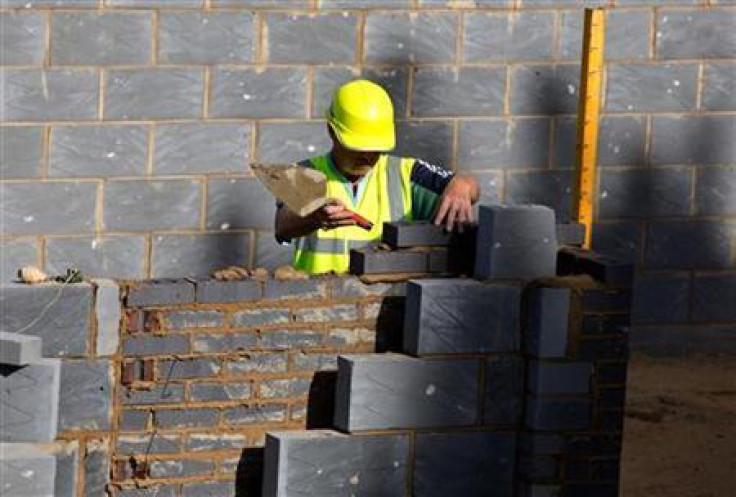Barratt Developments Sales Leap 71% Amid Help to Buy Scheme

Barratt Developments said its sales of new homes jumped 71% as the controversial Help to Buy scheme drives up demand in the housing market by making mortgages easier to get hold of.
In a trading update on its first half, homebuilding firm Barratt said total forward sales were £1.266bn in the six months to the end of December. This was up 71% on £742.1m during the same period a year before. Completions were up 19% to 6,195.
Mortgage-easing stimulus such as Help to Buy and a constrained supply of new homes has seen house prices jump 5.5% on average across the UK, according to the Office for National Statistics (ONS).
"As a result of the continued recovery of the housing market across all regions and our £3.1bn investment in new land over the last four years, we have been able to increase materially the number of new homes being built and our profitability," said Mark Clare, group chief executive.
"Our disciplined approach to running the business is delivering significant improvements across all key financial metrics and with forward sales of over £1.2bn, we are well placed for Full Year 2014 and beyond."
Under Help to Buy, consumers are offered a package of support to bring down the cost of a mortgage. First time buyers can get an interest free equity loan from the government worth up to 20% of a new build property.
There is also a government guarantee on offer for banks that pay a small commercial fee, where taxpayers will underwrite the institution's mortgage lending. This has increased the amount of high loan-to-value mortgages, with many lenders now asking for a 5% deposit. Before, some deposits were as high as 20, shutting many aspirant homeowners out of the market.
Barratt said purchases using the Help to Buy scheme accounted for 29% of its completions in the first half. The average selling price leapt 13.7% to £211,000.
Some fear a new housing market bubble is being blown, because high demand amid Help to Buy and a constrained supply on new homes is driving up prices while incomes are falling in real terms.
There is also the risk of a shock to consumers with mortgages when the Bank of England eventually hikes interest rates. The Bank's base rate is currently at its record-low of 0.5%. Loose monetary policy is helping to support the emerging economic recovery.
Once this recovery takes hold and the unemployment rate has fallen below a 7% threshold set by Governor Mark Carney, the Bank will look at raising interest rates.
© Copyright IBTimes 2024. All rights reserved.






